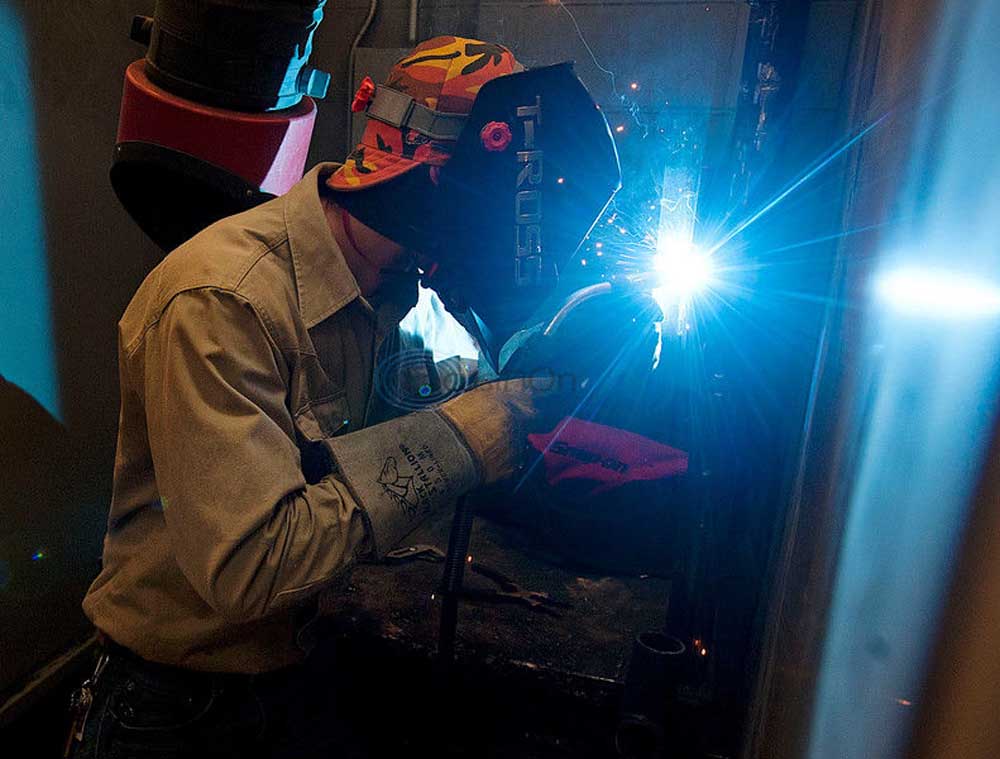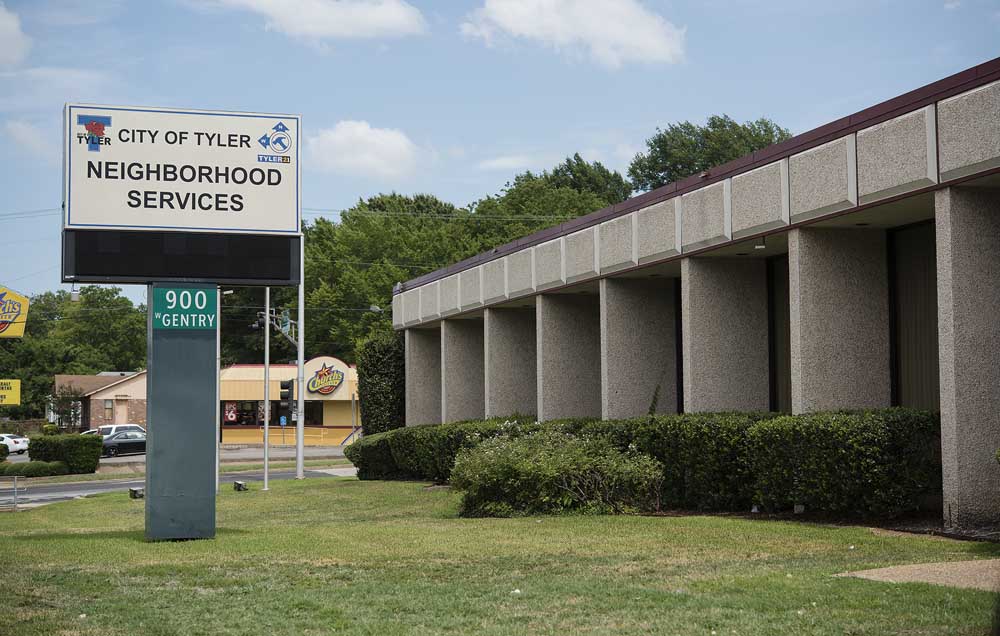Growth of TJC welding program stays constant
Published 10:27 pm Monday, April 6, 2015

- photo by Sarah A. Miller/Tyler Morning Telegraph Student Trenton Timmons welds during a welding class Tuesday March 24, 2015 at the Skills Training Center located at the Tyler Junior College West Campus in Tyler.
Bryan Baker tells people that by the time they have gotten out of bed in the morning and driven to work, welding has already impacted their life in many ways.
Welding, a huge field and a tool that many industries use, attracts so many students to Tyler Junior College’s welding training program that the college has to turn some applicants away, Baker, professor of welding and department chairman for industrial trades, said.
Since the 2007-2008 school year, TJC has doubled the number of students it can accommodate by adjusting the structure and number of morning, afternoon and night classes.
At any time there are 75 to 80 students enrolled, Baker said. The number turned away varies year to year, he added, saying he could not estimate how many.
Seeking both a certificate and an associate degree, Trenton Timmons, 22, of Tyler, said he likes the “hands-on” aspect of welding and takes pride in what he welds. He likes learning the different types of welding, especially enjoying stick welding.
“There are tons of jobs out there. As long as you have that skill trade, you can go anywhere in the world. You have a secure job,” he said.
Also enrolled in TJC’s welding program, Hunter Johnson, 20, of Lindale, said, “I like how you take nothing and make something. Building things is what I like doing. I enjoy welding in general.”
His plans when he finishes his studies at TJC are to either work in a fabrication shop or on a pipeline.
The TJC welding program was started probably in the 1970s “to meet the needs of the local community, region, state and the world,” Baker said.
“Local industry needs skilled and trained people; companies locate to areas where there is a good source of labor,” he said.
Oil and gas industries in Tyler utilize welders and other facilities also use welders, some in production of different types of tanks, Baker said. LeTourneau Inc. in Longview uses welders in producing earth-moving equipment and drilling rig equipment, while Trinity Industries in Longview welds railroad tanker cars.
Originally housed on the TJC main campus, the college’s welding program moved to the west campus and located in the skills training center building when it opened in 2002.
To gain admission into the program, applicants must pass the Bennett Mechanical Comprehension Test.
It is a two-year program. Students can earn an entry-level certificate upon completing the first year and an advanced level certificate the second year. If they also take academic courses, they earn an associate degree.
“Our completion rate is high,” Baker said. He estimated 80 to 90 percent obtain a certificate and probably less than 50 percent earn an associate degree.
The degree opens doors that they would not have otherwise, Baker said, such as making them eligible to become a certified welding inspector.
Graduates are qualified to do structural or pipe welding, Professor of Welding James Griffin said. Baker elaborated, saying they have skills in oxy-fuel welding, stick welding, MIG welding, TIG welding and flux cored arc welding.
Salaries of welders vary widely, Baker said, depending on the industry and required skill level.
Welding for a manufacturer of trailers, which requires less skill, might make $10 to $15 an hour, but the range progresses upward to $30 an hour. If welders are very proficient, experienced and want to travel, they could make over $100,000 a year, Baker said.
Baby boomers are getting to the point where they are retiring and skilled people are needed to take their place, so there’s more demand for welders, Baker and Griffin observed.
Noah Main, 19, of McGill, said he expects to be able to get a job “pretty much anywhere” when he finishes training at TJC.
“I like welding because I can use my hands. It’s almost like an art; it’s like painting but with molten metal,” Main said. “I can make it look pretty and I can make it look strong and functional with TIG welding. I live on a farm. I can use it to repair tractors, machinery, gates and fences. It’s very handy.”
A dislocated worker, Wilfred Bell, 55, decided to take up welding when his air conditioning job moved to Mexico and a friend told him welding is a good field to go into. “It’s a challenge,” Bell said of the training. He plans to seek employment as a welder.
Tommy Young, 52, of Malakoff, also laid off from an air conditioning plant and enrolled in the welding program, said, “I’ve always been interested in building things and the things that you can build through welding have a permanence to them. It (welding) has a precision to it that makes you use your head. You have to pay full attention to what you are doing.”
Enrique Romo, 31, said he will probably open a family collision and welding business to work on cars, oil rigs and trucks when he finishes the TJC welding program.
“I can see making a living with it,” Romo said.






